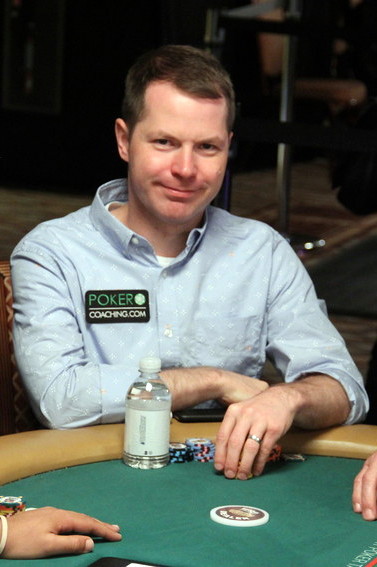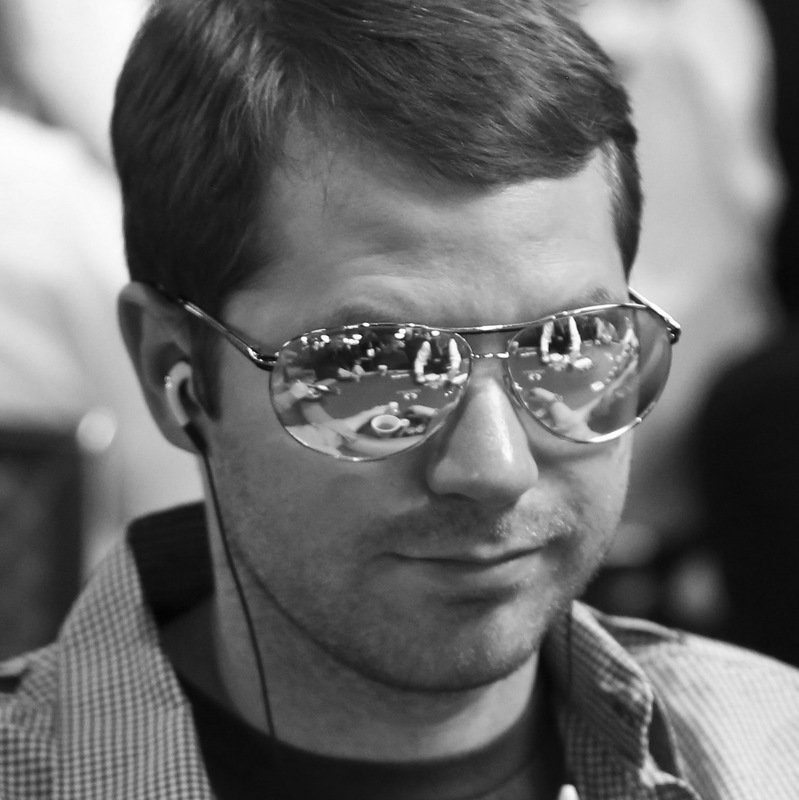






Sometimes You Just Have To Give Upby Jonathan Little | Published: May 06, 2020 |
|
|
Card Player Magazine, available in print and online, covers poker strategy, poker news, online and casino poker, and poker legislation. Sign up today for a digital subscription to access more than 800 magazine issues and get 26 new issues per year!
 I was recently told about a hand by a recreational poker player that illustrates a costly mistake that many players make with their bluffs on a regular basis.
I was recently told about a hand by a recreational poker player that illustrates a costly mistake that many players make with their bluffs on a regular basis.
Early in a $500 buy-in tournament with 30,000 effective stacks at 200-400 with a 400 big blind ante, a loose player raised to 1,000 from middle position and the hijack, cutoff, and button called. Our Hero looked down at J 10
10 in the big blind.
in the big blind.
Calling is the only viable option in this situation. J 10
10 flops amazingly well, so you don’t do anything to take away your potential to see the flop. If you three-bet, there is a chance that one of the opponents will four-bet, forcing you to fold, which would be a disaster.
flops amazingly well, so you don’t do anything to take away your potential to see the flop. If you three-bet, there is a chance that one of the opponents will four-bet, forcing you to fold, which would be a disaster.
Hero called. The flop came A Q
Q 6
6 , giving Hero a royal flush draw.
, giving Hero a royal flush draw.
While there is often a bit of merit to leading with your draws that have a lot of equity but no showdown value, when the board contains two big cards, it is highly likely that at least one of the opponents has top pair or a better made hand that will not fold. When you lack fold equity with your draws, checking is better.
Hero checked, as did everyone else. The turn was the 3 . The pot is 5,600.
. The pot is 5,600.
Once the flop checks through, it is much more likely that no one has an ace, although some weak aces will occasionally check the flop. Now if Hero makes a substantial bet, he will be able to make his opponents fold most of their hands.
Notice that Hero would also like to bet large in this situation with his best made hands like A-6 and 3-3 for protection, given there are many potential draws available. A bet of 5,000 or so would be excellent. If Hero bets smaller, he will get called by weaker made hands such as a queen or six that may or may not fold to a river bet. It is much better to force those hands to fold immediately, and if they decide to make a loose call, Hero can then force them to fold with a substantial river bet.
Hero bet 3,000. The cutoff and button called. The river was the 6 .
.
Had Hero bet larger on the turn, he would not need to fear his opponents having many combinations of rivered trips in their ranges, but since he used a medium-sized turn bet, it is somewhat likely that at least one of his opponents has either a slow played top pair or trips. If he was against only one opponent, he should make a river bluff, but against two opponents, it is way too likely one of the two opponents will call.
Hero bet 10,000 into the 14,600 pot. The cutoff folded and the button went all-in. Hero obviously folded.
While you should often go for a bluff with your busted draws that cannot win at the showdown, against multiple players who have the potential to have many effective nut hands in their range that will not fold to any bet, you must be disciplined and fold. Sometimes, you just have to give up. ♠
 Jonathan Little is a professional poker player and best-selling poker author with over $7,000,000 in live tournament earnings. If you want to learn how to play fundamentally sound poker and increase your win rate, check out PokerCoaching.com. Click here to try PokerCoaching.com for free.
Jonathan Little is a professional poker player and best-selling poker author with over $7,000,000 in live tournament earnings. If you want to learn how to play fundamentally sound poker and increase your win rate, check out PokerCoaching.com. Click here to try PokerCoaching.com for free.
Features
The Inside Straight
Strategies & Analysis